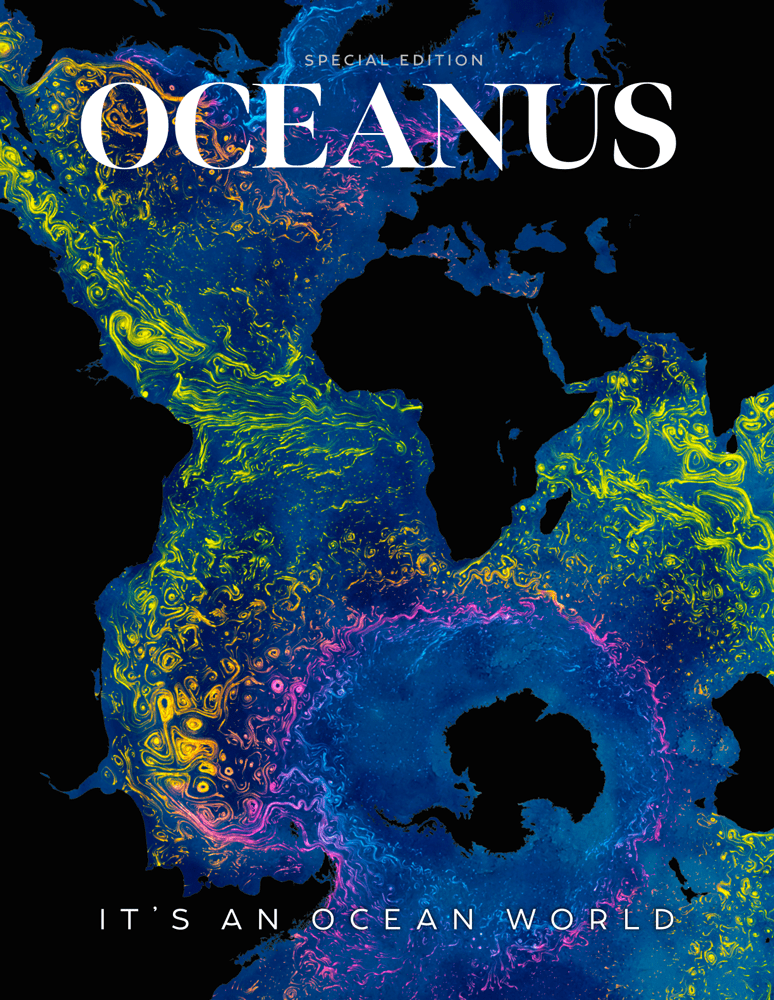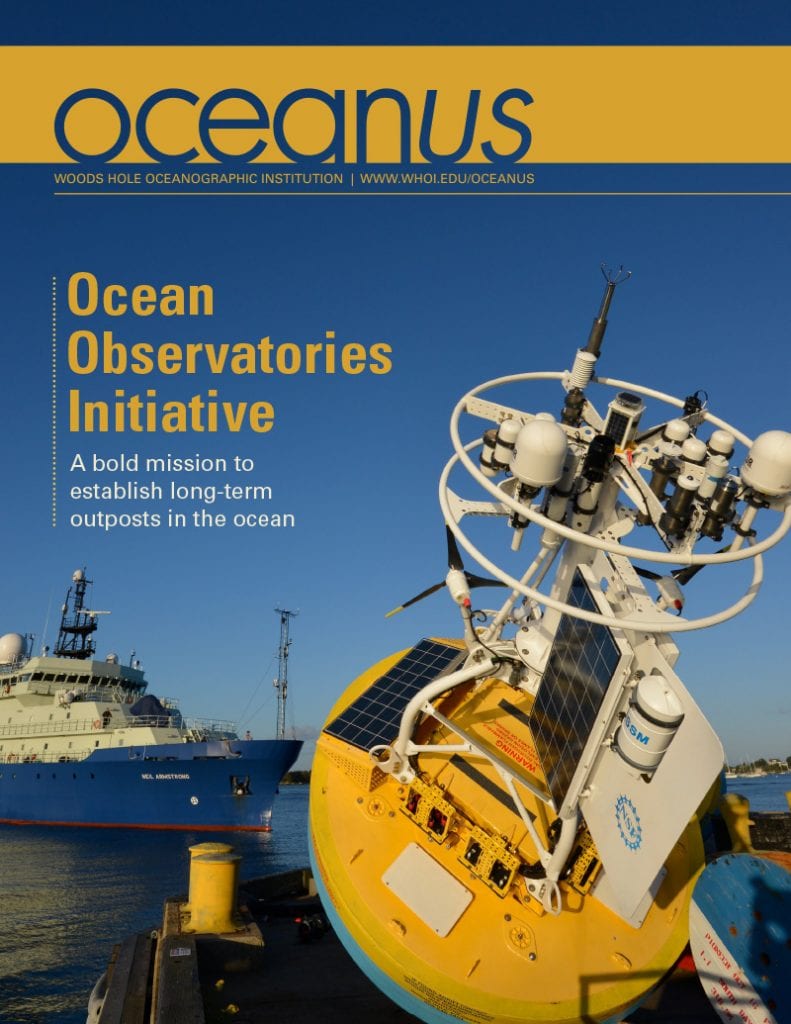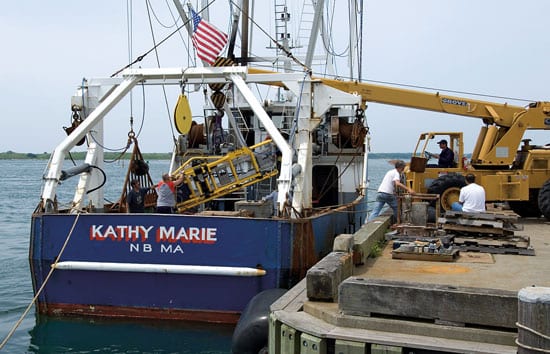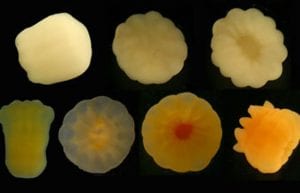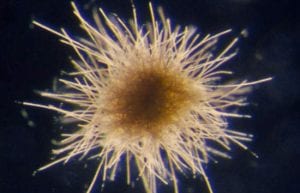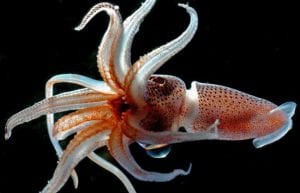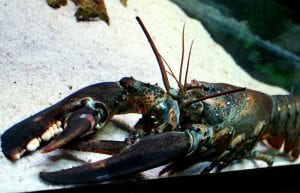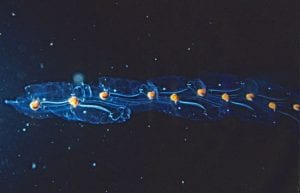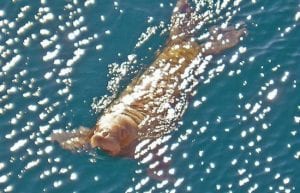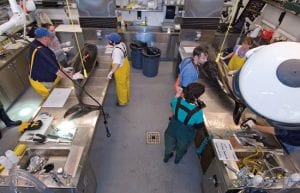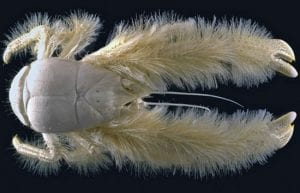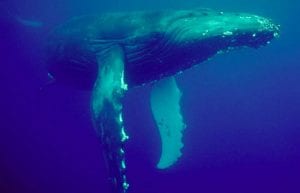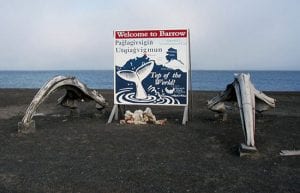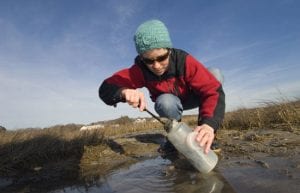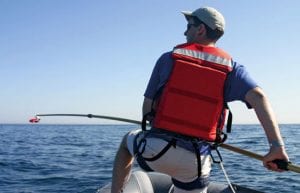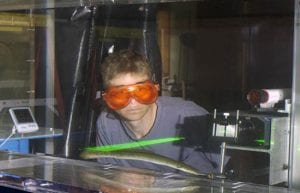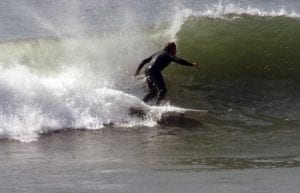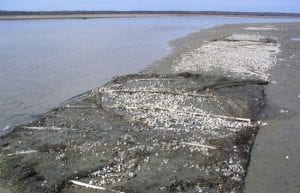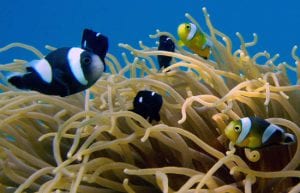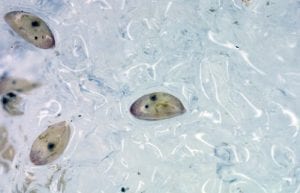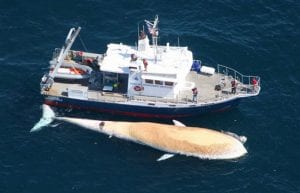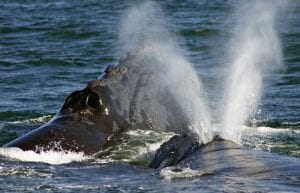Ocean Life
New ‘Eyes’ Size Up Scallop Populations
Part of the fun of fishing is never knowing exactly what might be swimming around beneath you. But that mystery is a major annoyance when it comes to keeping track…
Lullaby for Larvae
Like many babies, these tiny offspring arrived this spring amid much fanfare and a little…
Ocean Microscope Reveals Surprising Abundance of Life
Towing an underwater video microscope across the Atlantic Ocean, two scientists found unexpected abundances of…
Voyage Takes a Census of Life in the Sea
Scientists collected more than 1,000 shrimplike creatures, swimming snails and worms, and gelatinous animals, including…
A Modest Proposal to Sustain Lobsters and Lobstermen
A new study by a WHOI scientist and a former lobsterman suggests a provocative lobster…
Transparent Animal May Play Overlooked Role in the Ocean
Salps don’t get much respect. They’ve been around for millions of years, but hardly anyone…
Abandoned Walrus Calves Reported in the Arctic
Researchers on an oceanographic voyage in the Arctic Ocean report, for the first time, baby…
Mass Strandings Keep New Marine Mammal Facility Busy
Woods Hole Oceanographic Institution’s new Marine Research Facility (MRF) opened its doors just in time…
Caught in the Middle of the Marine Mammal Protection Act
In the past few years, several research projects have been halted because of conflicting interpretations…
What Brings the Food that Brings the Whales?
Watching the gray, pitching ocean from the beach in Barrow, Alaska, Carin Ashjian, a biologist…
Graduate Student Discovers an Unusual New Species
Sheri Simmons gets into the rugged wilderness as often as she can, backpacking in Newfoundland,…
To Find Whales, Follow Their Food
The average adult right whale consumes about a ton of food a day, eating billions…
Diving into the Right Whale Gene Pool
Like forensic detectives, a multi-institutional team of scientists has followed a thread of DNA from…
Doing the Right Thing for the Right Whale
The situation is urgent: Seventy years after whaling was banned, the North Atlantic right whale…
Scientists Find a New Twist in How Squids Swim
Erik Anderson was vexed by some scientific papers he read during his first year of…
Scientific (and Surfing) Safari
Eric Montie has a great tan, photos of huge waves taped above his computer, and a…
A Mysterious Disease Is Infecting Northeast Clam Beds
Scientists follow clues to the mysterious disease that is killing off clams on Cape Cod…
Finding Nemo…and Other Endangered Fish
A novel method to track fish larvae?using tetracycline to tag otoliths, or ear bones?sheds lights…
Cold Comfort for Barnacles
A WHOI research team reports that barnacle larvae can remain frozen up to seven weeks…
Big Whale, Big Sharks, Big Stink
A shipping tanker first spotted the whale on Sept. 9 about 24 miles southeast of…
Building an Automated Underwater Microscope
A conversation with Woods Hole Oceanographic Institution biologist Heidi Sosik about her work studying phytoplankton…
In and Out of Harm’s Way
Just a few more miles or a few more minutes. That’s what scientists and some…
A Whale Expert is Called in to Decipher Odd Elephant Calls
An article about work done by WHOI postdoctoral investigator Stephanie Watwood to analyze atypical sounds…
